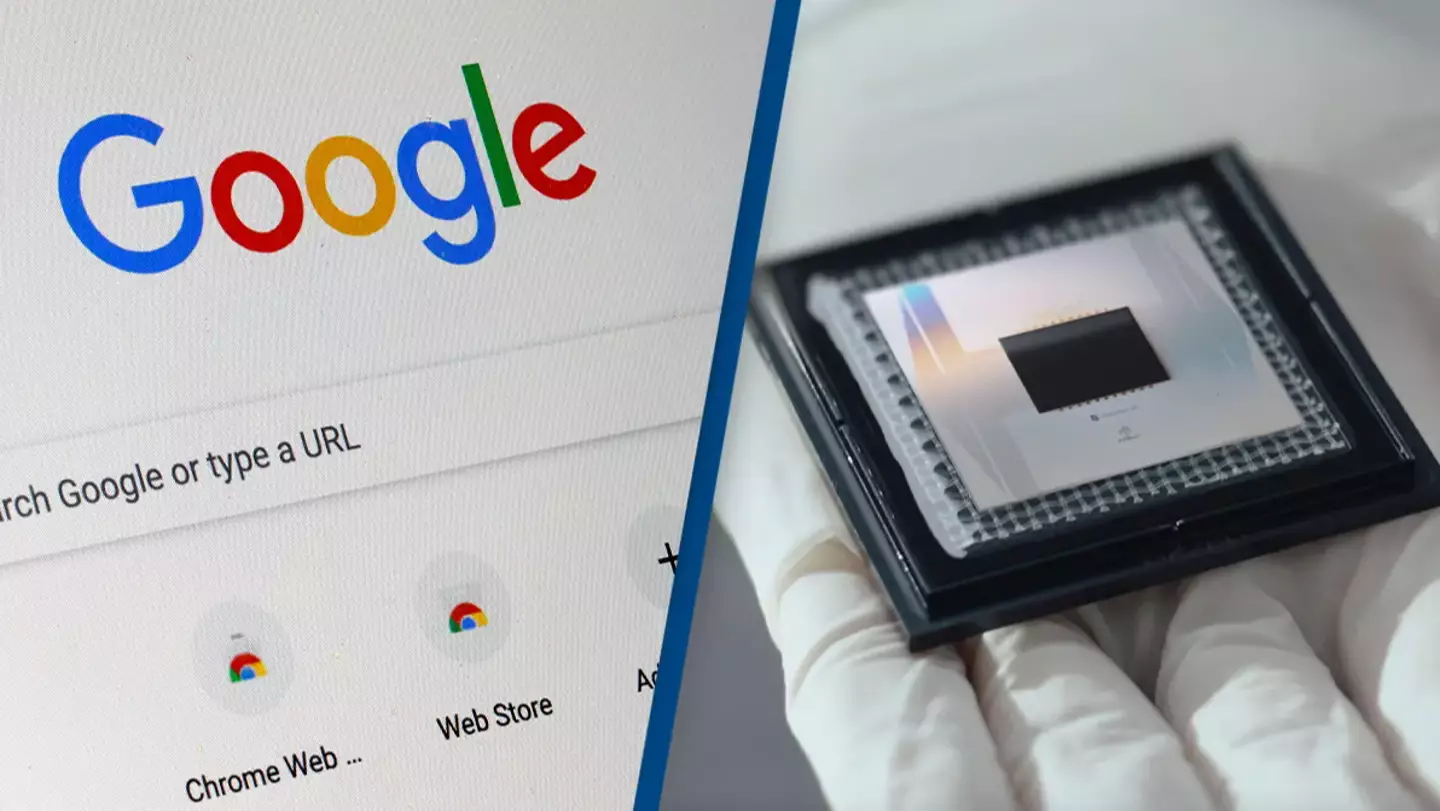
Google has created a quantum chip which outperforms 'today’s fastest supercomputers' by a ridiculous amount of time.
Yesterday (December 9), founder and lead of Google Quantum AI, Hartmut Neven, announced its new 'state-of-the-art quantum chip'.
The journey
Neven explains when he first founded Google Quantum AI in 2012, the plan was 'to build a useful, large-scale quantum computer that could harness quantum mechanics'.
For those of us who dropped science as soon as we could, quantum mechanics 'is the field of physics that explains how extremely small objects simultaneously have the characteristics of both particles (tiny pieces of matter) and waves (a disturbance or variation that transfers energy),' the Department of Energy explains.
Advert
And a quantum computer is basically a device that solves problems far faster than any of the devices you or I may have through harnessing the power of quantum mechanics.
Google Quantum AI's plan to create a large-scale quantum computer began in the hopes of benefitting 'society by advancing scientific discovery, developing helpful applications, and tackling some of society's greatest challenges'.
And the company has since revealed an exciting update in its journey.

What's the latest update?
Introducing Willow - Google Quantum AI's new quantum chip which has proven itself to have a 'state-of-the-art performance across a number of metrics' - with two achievements particularly exciting.
Neven reveals: "The first is that Willow can reduce errors exponentially as we scale up using more qubits. This cracks a key challenge in quantum error correction that the field has pursued for almost 30 years.
"Second, Willow performed a standard benchmark computation in under five minutes that would take one of today’s fastest supercomputers 10 septillion (that is, 1025) years — a number that vastly exceeds the age of the Universe."
Let me break that down into normal speak for you.
How does the chip work?
To break the first one down a bit for you, basically, in quantum computing, the units of computation - called qubits - 'have a tendency to rapidly exchange information with their environment, making it difficult to protect the information needed to complete a computation'.
"Typically the more qubits you use, the more errors will occur," Neven explains.
However, when testing out Willow, the team found the more qubits they used, errors actually ended up occurring less and less.

The Willow chip is subsequently the 'first system' to have ever been able to 'drive errors down while scaling up the number of qubits' and so the chip is 'the most convincing prototype for a scalable logical qubit built to date'.
And if that wasn't impressive enough already, the chip is also ridiculously fast.
The team used the 'hardest benchmark that can be done' to test the chip and the benchmark essentially 'checks whether a quantum computer is doing something that couldn’t be done on a classical computer'.
Neven revealed: "Willow’s performance on this benchmark is astonishing: It performed a computation in under five minutes that would take one of today’s fastest supercomputers 1025 or 10 septillion years. If you want to write it out, it’s 10,000,000,000,000,000,000,000,000 years.
"This mind-boggling number exceeds known timescales in physics and vastly exceeds the age of the universe. It lends credence to the notion that quantum computation occurs in many parallel universes, in line with the idea that we live in a multiverse, a prediction first made by David Deutsch."
Job well done I'd say.
Topics: Google, Technology, World News, Science, Artificial Intelligence